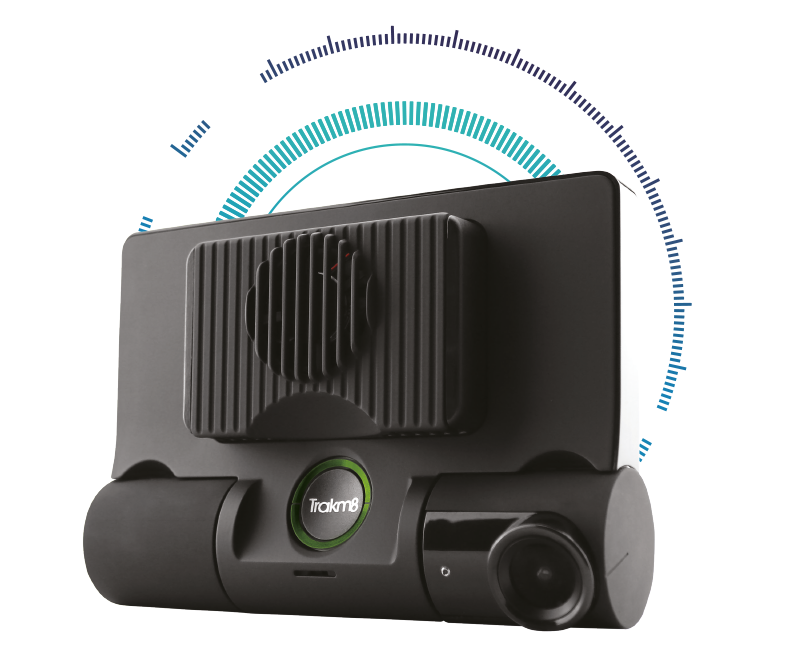New GDPR rules are designed to increase protection and secure the rights of individuals and access to their personal data. Businesses will now have to be accountable for maintaining data privacy and security, and this applies to all dash cam footage.
If you are using a dash cam in your own vehicle for personal use, you will be exempt from GDPR requirements. Any business use will need to be regulated however, to avoid extensive fines.
What is GDPR?
GDPR (General Data Protection Regulation) is an act that dictates EU security and privacy laws and governs the possession, usage and storage of personal data.
Dash cams that record video and audio and store the data must be GDPR compliant. Individuals featured in dash camera footage have data protection rights over personal data – i.e. video or audio footage that shows their face or captures other sensitive information, such as registration plate number.
This data must be protected by the company taking and using the footage to avoid penalties, usually in the form of a hefty fine. Breaching GDPR rules as a business will lead to an investigation by regulators, the ICO, and serious consequences.
Are dash cameras an invasion of privacy?
As it stands, dash cams aren’t classed as an invasion of privacy as long as GDPR rules are adhered to. In terms of dash camera usage in business, employees must be informed of the fact that they are being recorded in order to avoid claims of invasion of privacy.
How does GDPR affect the use of commercial dash cams?
Dash cams are now a common fixture in many company vehicles. They are proven to combat fraudulent claims and reduce at-fault accident rates, in turn leading to reductions in insurance premiums.
However, these vehicle cameras do fall under the General Data Protection Regulation, which came into force in May 2018. GDPR grants new data protection rights to individuals with regards to their personal data and puts new obligations on companies that store personal data.
As with CCTV or other surveillance systems, vehicle cameras record images of people. The image of a person is classed as personal data under GDPR – as is the number plate of their vehicle, if it is privately owned.
Are dashcams GDPR compliant?
There will be conditions that you must follow in order to ensure that vehicle cameras are GDPR compliant. GDPR places new responsibilities on companies, including:
- Stricter rules around the collection, storage and use of personal information.
- A stronger requirement to provide a clear explanation of the personal data that you process, how you process it and with whom you share that data.
- A 72-hour window in which you must notify the regulator of a data security breach.
- You are also required to notify any individuals impacted by a data breach.
Companies also face much greater penalties under GDPR than under the previous legislation – for the most serious breaches, companies can be fined up to a maximum of €20 million or 4% of their global turnover.
With this in mind, it is important that businesses understand the law and its requirements.
UK dash cam laws and GDPR
The guidelines listed under GDPR refer to all aspects of personal data. When dealing with video and audio from dashcams, you’ll need to carefully understand what rules will apply.
Reading the Information Commissioner’s Office (ICO) code of practice for surveillance cameras and personal information can be useful in understanding where your responsibilities lie as a business owner or fleet manager.
The gov.uk surveillance camera code of practice runs through the steps to complying with these principles also.
What to consider when dealing with dash cams and GDPR
Deciphering the complex GDPR rules can be difficult. Here are some key points we’ve pulled together for you to consider:
- Ensure that you have a robust company dash cam policy, or include the use of dash cams in your existing policy on using, storing or processing personal data.
- Your policy should include the length of time for which you will store footage – do not store data for longer than is absolutely necessary.
- Communicate your policy to users of your vehicles fitted with dash cams.
- Notify members of the public that your vehicles are fitted with dashboard cameras – a simple decal displayed on each vehicle will suffice.
- You must securely store all video footage and photographs. Access to the footage should be restricted to authorised personnel who have received the proper data protection training.
We’ve previously spoken about our approach to GDPR in an article about GDPR and driver data, if you’d like more information.
Creating a company dash cam policy
In order to create an effective dash cam policy within your business, you must outline key factors that will ensure GDPR compliance as well as maintaining the effectiveness of your camera and/or telematics systems.
You should consider a select few points when implementing a company dash cam policy:
- List which vehicles will have dash cams installed
- Figure out how you will effectively inform all drivers of the use of dash cams
- Detail how and where you will store the data collected
- Choose how long data will be stored for and how it will be cleared securely
- The actions you will take when dealing with footage that displays any driver issues or incidents
A clear focus in these areas will help you to ensure that your business is GDPR compliant when it comes to using and storing dash cam footage and data.
Can dash cam footage be used in court?
Dash cam footage can be used in court and is often used as supporting evidence in a case. The footage used however, must be able to support a legal argument and show key details of any incidents, such as number plates.
As a fleet manager, you may have to use dash cam footage to prove who’s at fault in court in the event of a serious accident involving one of your drivers. In these cases, clear dash cam footage is crucial evidence.
How can Trakm8 help with dash cam compliance?
At Trakm8, we’ve made sure that we provide high levels of privacy and security with the data we hold and within our telematics systems. Whether you invest in singular vehicle cameras, such as the Roadhawk dash cams, or go for a full integrated telematics camera system, you’ll need to ensure GDPR compliance.
We can guide you through storing and using data collected from our systems, in line with GDPR requirements. Our dash cam experts can help explain the key steps and help you avoid any pitfalls, all as part of our customer service.
If you would like to find out more about our dash cam solutions, fill out the short form below and one of our team will be in touch. Alternatively, call us on 0330 311 5157 or email us at info@trakm8.com.


